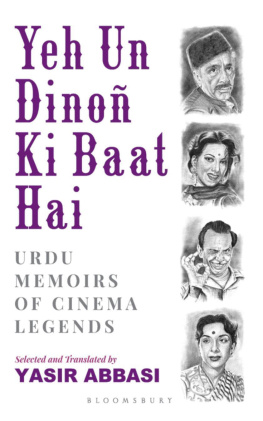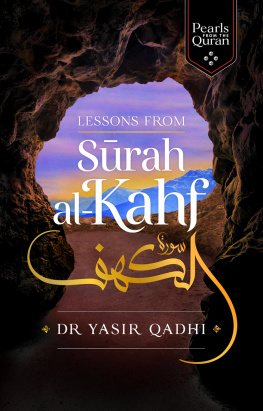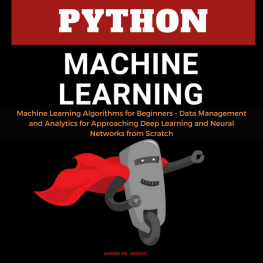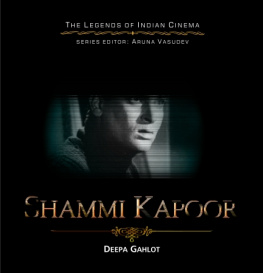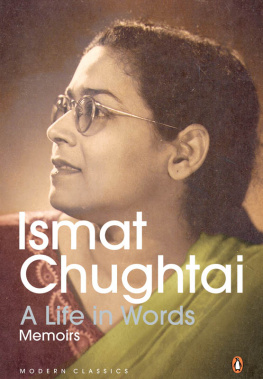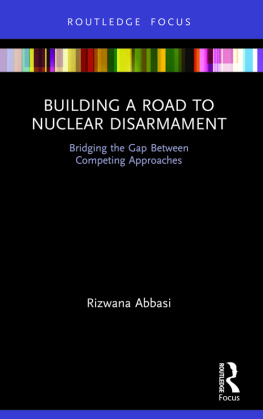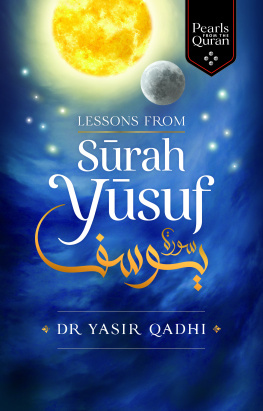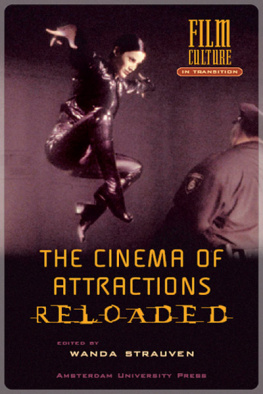Yasir Abbasi - Yeh Un Dinoñ Ki Baat Hai: Urdu Memoirs of Cinema Legends
Here you can read online Yasir Abbasi - Yeh Un Dinoñ Ki Baat Hai: Urdu Memoirs of Cinema Legends full text of the book (entire story) in english for free. Download pdf and epub, get meaning, cover and reviews about this ebook. year: 2018, publisher: Bloomsbury India, genre: Non-fiction. Description of the work, (preface) as well as reviews are available. Best literature library LitArk.com created for fans of good reading and offers a wide selection of genres:
Romance novel
Science fiction
Adventure
Detective
Science
History
Home and family
Prose
Art
Politics
Computer
Non-fiction
Religion
Business
Children
Humor
Choose a favorite category and find really read worthwhile books. Enjoy immersion in the world of imagination, feel the emotions of the characters or learn something new for yourself, make an fascinating discovery.
- Book:Yeh Un Dinoñ Ki Baat Hai: Urdu Memoirs of Cinema Legends
- Author:
- Publisher:Bloomsbury India
- Genre:
- Year:2018
- Rating:5 / 5
- Favourites:Add to favourites
- Your mark:
- 100
- 1
- 2
- 3
- 4
- 5
Yeh Un Dinoñ Ki Baat Hai: Urdu Memoirs of Cinema Legends: summary, description and annotation
We offer to read an annotation, description, summary or preface (depends on what the author of the book "Yeh Un Dinoñ Ki Baat Hai: Urdu Memoirs of Cinema Legends" wrote himself). If you haven't found the necessary information about the book — write in the comments, we will try to find it.
Yasir Abbasi: author's other books
Who wrote Yeh Un Dinoñ Ki Baat Hai: Urdu Memoirs of Cinema Legends? Find out the surname, the name of the author of the book and a list of all author's works by series.
Yeh Un Dinoñ Ki Baat Hai: Urdu Memoirs of Cinema Legends — read online for free the complete book (whole text) full work
Below is the text of the book, divided by pages. System saving the place of the last page read, allows you to conveniently read the book "Yeh Un Dinoñ Ki Baat Hai: Urdu Memoirs of Cinema Legends" online for free, without having to search again every time where you left off. Put a bookmark, and you can go to the page where you finished reading at any time.
Font size:
Interval:
Bookmark:
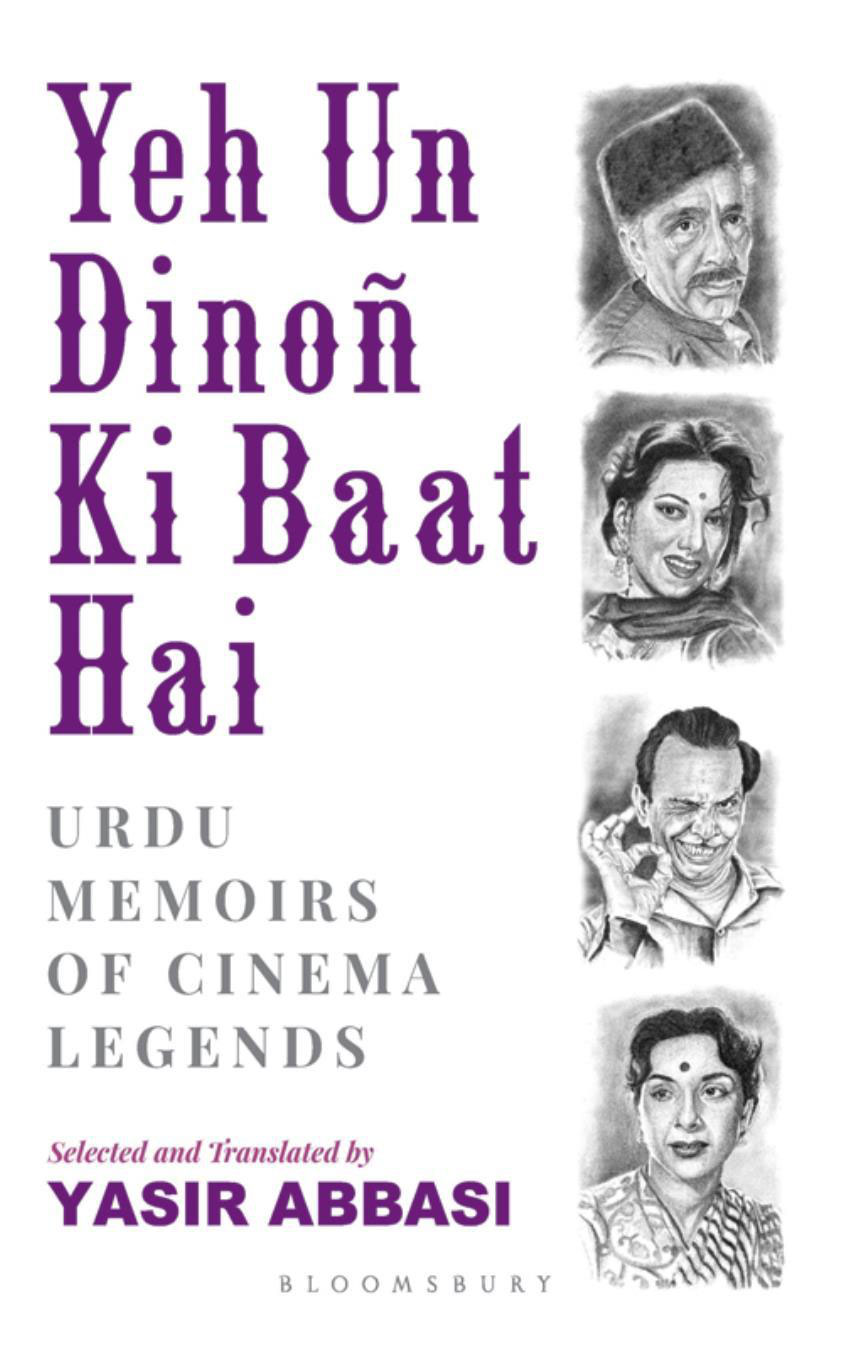
Yeh Un Dino Ki Baat Hai
Yeh Un Dino Ki
Baat Hai
Urdu Memoirs of Cinema Legends

Selected & Translated by
Yasir Abbasi
Portraits by Geetika Narang Abbasi

First published in India 2018
2018 by Yasir Abbasi
All rights reserved. No part of this publication may be reproduced or transmitted in any form or by any means, electronic or mechanical, including photocopying, recording, or any information storage or retrieval system, without prior permission in writing from the publishers.
No responsibility for loss caused to any individual or organisation acting on or refraining from action as a result of the material in this publication can be accepted by Bloomsbury or the author.
The content of this book is the sole expression and opinion of its author, and not of the publisher. The publisher in no manner is liable for any opinion or views expressed by the author. While best efforts have been made in preparing this book, the publisher makes no representations or warranties of any kind and assumes no liabilities of any kind with respect to the accuracy or completeness of the content and specifically disclaims any implied warranties of merchantability or fitness of use for a particular purpose.
The publisher believes that the content of this book does not violate any existing copyright/intellectual property of others in any manner whatsoever. However, in case any source has not been duly attributed, the publisher may be notified in writing for necessary action.
BLOOMSBURY and the Diana logo are trademarks of Bloomsbury Publishing Plc
ISBN: Hardback: 9789387457768; eBook: 9789387471054
10 9 8 7 6 5 4 3 2 1
Bloomsbury Publishing India Pvt. Ltd
Second Floor, LSC Building No.4
DDA Complex, Pocket C 6 & 7, Vasant Kunj
New Delhi 110070
www.bloomsbury.com
Created by Manipal Digital Systems
Printed and bound in India by Thomson Press Pvt Ltd
To find out more about our authors and books visit www.bloomsbury.com.
Here you will find extracts, author interviews, details of forthcoming events and the option to sign up for our newsletters.
For my parents Yasmin and Muntasir
I got films from one and Urdu from the other
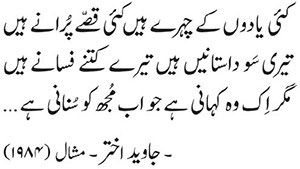
Kaee yaado ke chehre hai, kaee qisse puraane hai,
Teri sau daastaanei hai, tere kitne fasaane hai,
Magar ik woh kahaani hai, jo ab mujh ko sunaani hai
Javed Akhtar - Mashaal (1984)
Khaakay Pen Portraits
-The Urdu Film Magazine: A Brief History
-Acknowledgements
When I was growing up, the arrival of an outstation guest delighted me no end. Before my relatives rupture a vein out of sheer joy or I catch the attention of Rajshri Productions, let me hasten to add that I wasnt interested in the visitors at all. All it meant to me was that Id get to go to the railway station and coax my father or uncle to buy me a film magazine.
In the 1980s, Chitrahaar and the weekend movies on Doordarshan were clearly insufficient consumption for cinema-obsessed youngsters. The onslaught of satellite channels was still a few years away and limited visibility obviously augmented the mystique about films and its stars. Its no wonder that film magazines prospered.
At the same time, 1980s was not exactly the golden age of Hindi cinema, and some simple pleasures certainly didnt come easy for a pre-teen addicted to all things film. Predictably, going overboard with the magazines was not allowed at home.
My mother, also a film enthusiast, would regularly read Shama a very popular Urdu monthly. A blend of movies and literature, the magazine was a staple in Urdu-reading households. The same composite format would later prove to be detrimental for the publication more on that in a bit.
I was fortunate that my parents taught me Urdu. So, once the permissible time limit for Filmfare, Stardust, et al. was reached, I would unflinchingly turn to Shama, and hallelujah, there would never be any objections! Of course, Id read only the film section a fairly exhaustive one and thus my indoctrination into Hindi films started early. Soon enough, the criteria for striking friendship at school included whether the other person could distinguish between Zeenat Aman and Parveen Babi or not (thankfully, no one countered that by asking me to tell Murad from Sapru).
Gradually, the rut of life kicked in, and though I continued to read about films later mainly books somewhere I left Urdu behind. Till around a few years back, when a re-reading of the translated essays of Saadat Hasan Manto on his film contemporaries led me to explore the original pieces. To say that it was fascinating to go through the actual features would be an understatement. It had me intrigued about Urdu writing on cinema virtually non-existent now in terms of visibility. Amidst the surge of film books in the last decade or so, I couldnt recall seeing or hearing about Urdu ones. Having witnessed in my childhood the following that magazines such as Shama, Ruby and Gulfaam enjoyed, this discovery seemed odd.
A bit of research revealed that it has nearly been a couple of decades since most of the magazines folded up. Delving further unveiled information about books too. Then began a hunt, and it was way more difficult than I had imagined. Usual suspects like shops selling old books or the Sunday market at Daryaganj in Delhi yielded practically nothing. What one came across for the most part were the conventionally acclaimed works chiefly fiction and poetry. Urdu writing on films was more or less absent. It became increasingly apparent that this was plainly a case of demand and supply what sells is what was available. Next stop was the library. Now this one was unexpected though one can find literature on most subjects handy, cinema finds negligible space in Urdu libraries. Save for a few who have preserved a small fragment, it is incredible that a plethora of Urdu film magazines that were reasonably famous over a period of no less than seven decades have all but vanished from the public domain.
When old film magazines and books in other languages can still be found, why not the Urdu ones? Was it the lack of a business model, some prejudice at work or simply inadequate readership? From what I could deduce, a bit of all this and some more.
Lets take a quick and admittedly simplistic view of Urdu and its connect with Indian cinema. Urdu and Hindi similar languages with a common root (the Khari Boli dialect) and identical syntax have for long been projected as divergent for reasons often political. Though the seeds of conflict were already sown by the turn of the 20th century, the most damaging blow came in 1947 with the partition of the country. With Pakistan adopting Urdu as its official language and India declaring Hindi as its own, an inexplicable stamp of religion was imposed on both the languages. Sahir put it brilliantly as usual:
Jin shehro mein goonji thi Ghalib ki navaa barso,
Un shehro mei ab Urdu benaam-o-nishaa thehri,
Font size:
Interval:
Bookmark:
Similar books «Yeh Un Dinoñ Ki Baat Hai: Urdu Memoirs of Cinema Legends»
Look at similar books to Yeh Un Dinoñ Ki Baat Hai: Urdu Memoirs of Cinema Legends. We have selected literature similar in name and meaning in the hope of providing readers with more options to find new, interesting, not yet read works.
Discussion, reviews of the book Yeh Un Dinoñ Ki Baat Hai: Urdu Memoirs of Cinema Legends and just readers' own opinions. Leave your comments, write what you think about the work, its meaning or the main characters. Specify what exactly you liked and what you didn't like, and why you think so.

